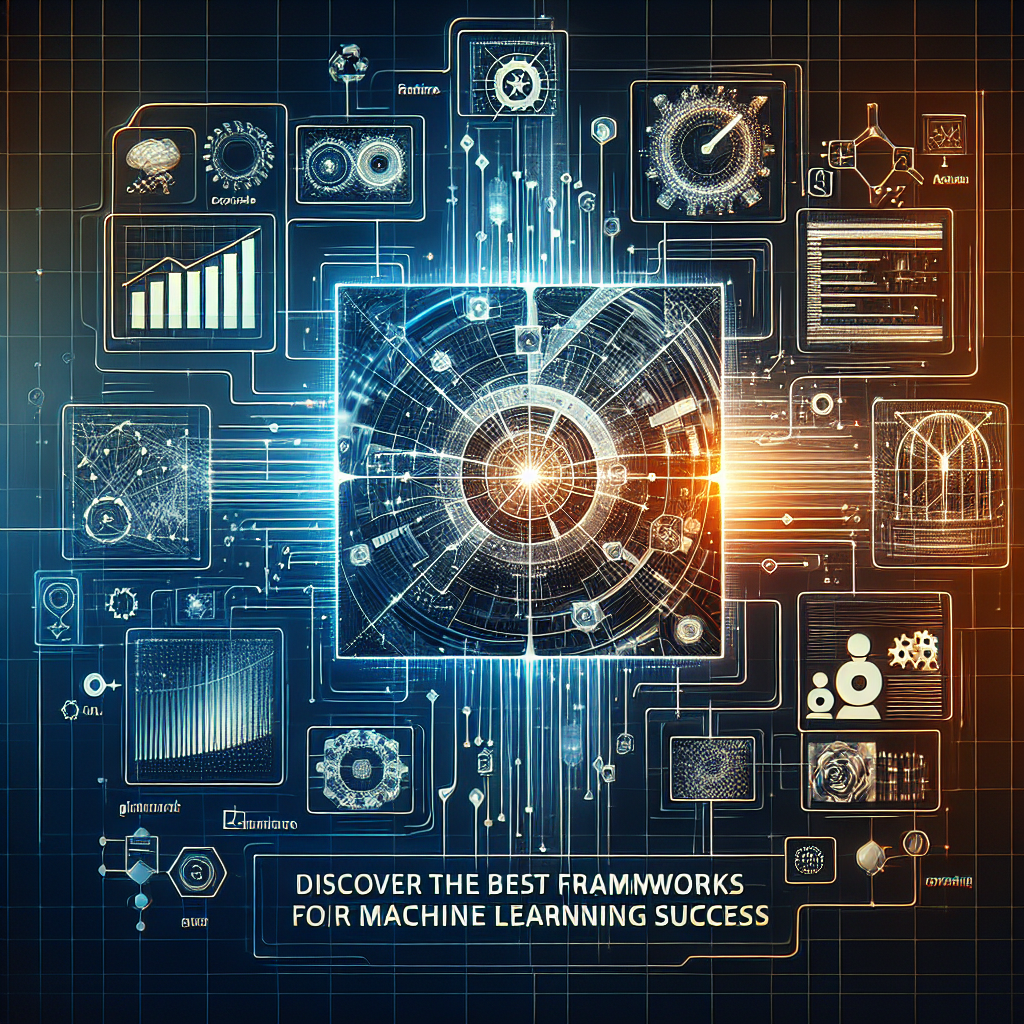Discover the Best Frameworks for Machine Learning Success
Introduction
Machine learning frameworks are essential tools for developers and data scientists, providing the necessary infrastructure to build and deploy machine learning models efficiently. Choosing the right framework can greatly influence the success of your machine learning projects, impacting everything from development speed to the performance of your ML models. Many professionals turn to essential machine learning frameworks to guide their choices.
Popular Machine Learning Frameworks
TensorFlow
TensorFlow is an open-source machine learning framework developed by Google. It is widely used for building complex models and is particularly strong in deep learning applications. For a deeper comparison between TensorFlow and other frameworks, check out TensorFlow vs PyTorch.
- Key features and advantages: Supports both CPUs and GPUs, offers flexible architecture, and provides a rich ecosystem of tools and libraries.
- Use cases: Image and speech recognition, natural language processing, and predictive analytics.
PyTorch
PyTorch is another popular open-source machine learning framework that is favored for its dynamic computation graph and ease of use. This framework is particularly popular among researchers and is often discussed in the context of PyTorch applications.
- Key features and advantages: Simple and intuitive syntax, excellent support for GPU acceleration, and strong community support.
- Use cases: Research in academic settings, computer vision tasks, and reinforcement learning.
Keras
Keras is a high-level API for building neural networks, which runs on top of TensorFlow. It simplifies the process of designing and training deep learning models. For new developers, Keras’ user-friendly interface can be a significant advantage.
- Key features and advantages: User-friendly interface, modularity, and excellent documentation.
- Use cases: Rapid prototyping of deep learning models and applications in various domains.
Scikit-learn
Scikit-learn is a powerful machine learning library for Python that is ideal for classical machine learning algorithms. It is well-regarded for its simplicity and effectiveness in common machine learning tasks.
- Key features and advantages: Simple and efficient tools for data mining and data analysis, well-documented, and easy to integrate with other libraries.
- Use cases: Classification, regression, clustering, and dimensionality reduction tasks.
Comparison of Frameworks
| Framework | Performance Metrics | Ease of Use | Community Support |
|---|---|---|---|
| TensorFlow | High | Moderate | Strong |
| PyTorch | High | Easy | Strong |
| Keras | Moderate | Very Easy | Growing |
| Scikit-learn | High | Easy | Strong |
Factors to Consider When Choosing a Framework
- Project requirements: Assess the specific needs of your project, including the type of data and algorithms needed.
- Scalability: Consider whether the framework can scale with your dataset and model complexity.
- Compatibility with other tools: Ensure that the framework integrates well with other software and libraries you plan to use.
Future Trends in Machine Learning Frameworks
The landscape of machine learning frameworks is continually evolving. Emerging frameworks are being developed to address specific needs and challenges in the field. The ongoing advancements are leading to frameworks that focus on usability and accessibility.
- Emerging frameworks: New tools that focus on ease of use and accessibility for non-experts are gaining popularity.
- Predictions for the future: We may see increased collaboration between frameworks to create hybrid models and improved interoperability.
FAQ
- What is a machine learning framework? A software library or toolkit that provides the tools for building machine learning models.
- How do I choose the best framework for my project? Consider your project requirements, ease of use, and community support.
- Are there free machine learning frameworks available? Yes, many popular frameworks like TensorFlow, PyTorch, and Scikit-learn are open source and free to use.
- What are the main differences between TensorFlow and PyTorch? TensorFlow has a static computation graph, while PyTorch uses a dynamic graph, making it more flexible for research.
- Can I use multiple frameworks in a single project? Yes, you can integrate different frameworks depending on your needs.




